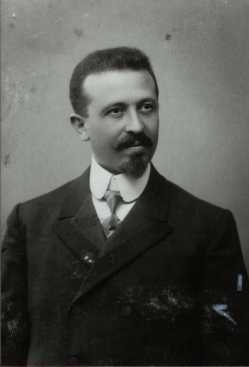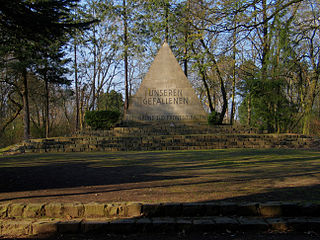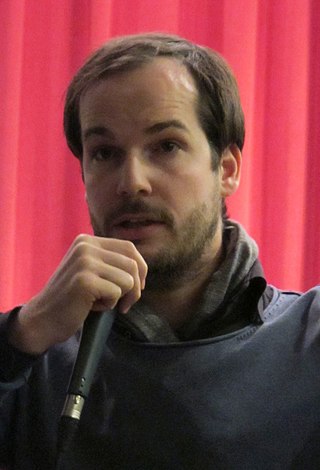Overview
Pre-World War I
German Jews serving in the military predates the formation of the second German Empire in 1871, Jews having served in the Prussian Army in the German Campaign of 1813, the "Wars of Liberation". Meno Burg became the highest ranking German Jew in the Prussian Army in the 19th century, reaching the rank of Major. Jews continued to serve in the Prussian Army during the Second Schleswig War (1864), the Austro-Prussian War (1866), and the Franco-Prussian War (1870–71). After the establishment of the Empire in 1871, Jews in the Prussian Army did not receive the anticipated equal rights; they were barred from government positions and officer ranks, while other German states like Hamburg and the Kingdom of Bavaria were more liberal. [2] Between 1880 and 1910, up to 30,000 German Jews served in the Prussian Army, but none were promoted to the rank of officer. However, among the 1,500 Jews who converted to Christianity, 300 were promoted. [4]
World War I





Some Jews did fear marginalisation as the German public enthusiastically geared up for the Great War, but once the war began such attitudes dissipated and the general reaction of Germany's Jews was to greet the war with enthusiasm. [5] With the outbreak of World War I in 1914, the situation drastically changed for German Jews in the military. At the start of the war, 12,000 German Jews volunteered for the German Army. Of the 100,000 Jews who served with the German military, 70,000 fought at the front line, 12,000 were killed in action, and 3,000 were promoted to officer ranks, [2] but they could only become officers of the reserve, not the regular army. [6] The Iron Cross was awarded to 18,000 German Jews during the war, of which 1,000 received the first class award. Jewish-born Wilhelm Frankl became the first member of the flying corps to be awarded the Pour le Mérite. [1] The anti-semitic Judenzählung of 1916 disgusted many German Jewish soldiers, being aimed at falsely proving that Jews were trying to avoid military service. [2] For many German Jews, the war held the hope of being treated equal to non-Jewish Germans for the first time. Many Jews also held strong patriotic feelings for Germany and the belief that the war in the East against the Russian Empire would bring the liberation of their fellow Eastern European Jews from pogroms and persecution. [7]
Immediately with the outbreak of the war, the Federation of German Jews requested the introduction of Feldrabbiner (English: Field Rabbis), rabbis dedicated to military chaplaincy in the German Army, something that had not existed before in the German Empire. In August 1914, eighty-one German rabbis volunteered to serve as Field Rabbis, and the first seven, among them Leo Baeck, entered service the following month. On the Eastern Front, with the approval of the German High Command, the rabbis also served the local Jewish population, not just the German Jewish soldiers. [8]
Weimar Republic and Nazi Germany
The Reichsbund jüdischer Frontsoldaten was formed in 1919 with the aim of helping veterans as well as promoting the sacrifice of the German Jewish community during the conflict. After the rise of the Nazis to power in 1933, Jewish veterans were initially protected against dismissal from government jobs after an intervention on their behalf by German President Paul von Hindenburg, but this changed in 1935 after his death. [9] After the events of the Kristallnacht in 1938, the federation stopped its activities and advised its members, almost 40,000, to emigrate from Germany. The veterans who remained in Germany, also initially released after arrests during the Kristallnacht, received no special treatment after this, being deported to concentration camps and murdered like other Jewish German citizens.[ citation needed ] The Nazis attempted to eradicate all evidence of Jewish soldiers fighting for Germany in World War I. [2] [1]
After World War II
In 1968 the Jewish authorities in Germany decided to mark the 3,000 known Jewish war graves of the Western Front of World War I with special markers bearing the Star of David and a Hebrew inscription. [1] The names of the 12,000 Jewish war dead had been published under the direction of Leo Löwenstein in a book published in 1932, titled Die Jüdischen Gefallenen. [10] A book consisting of letters sent home by Jewish soldiers during the war was published by the West German Bundeswehr in 1961. [6]
In 2006, on the eve of the 68th anniversary of the Kristallnacht, soldiers of the Bundeswehr formed the Bund jüdischer Soldaten, a federation of Jewish soldiers in the German Army, similar to the former Reichsbund jüdischer Frontsoldaten. [3] While few German Jews joined the West German Army after the Second World War, descendants of people who suffered through the Nazi persecution having been exempt from national service, by 2014 the Bundeswehr had around 250 German Jewish soldiers in its ranks again. [4]







